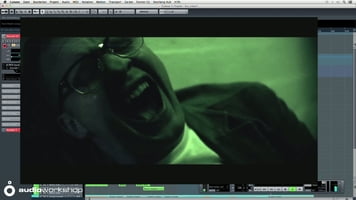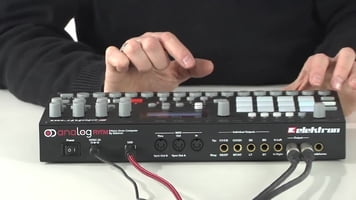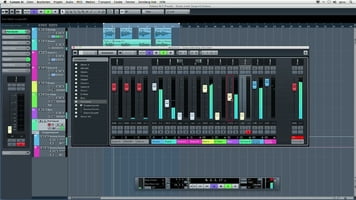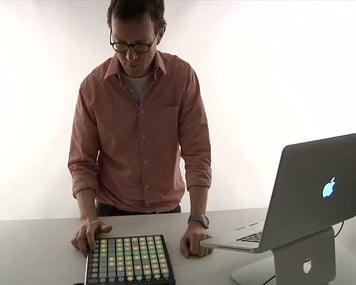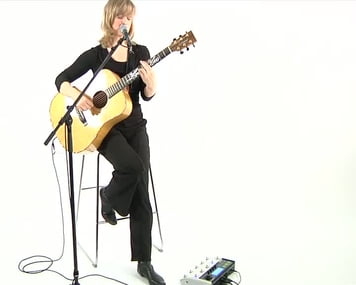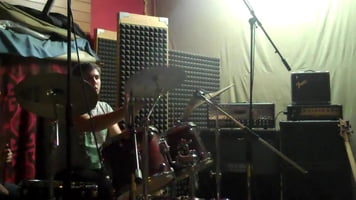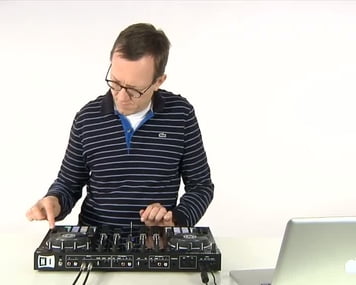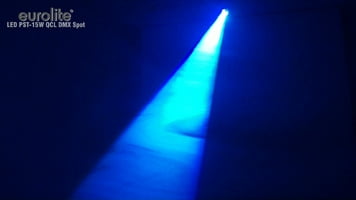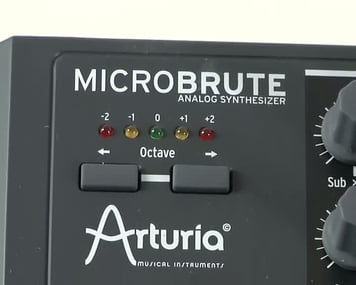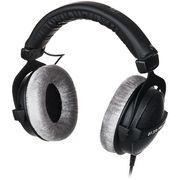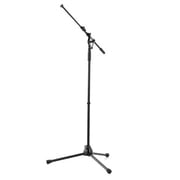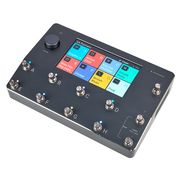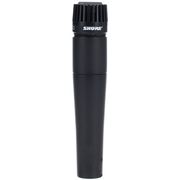Bandinterview: Musgos
Interview
In der Musikgeschichte des Pop und Rock gab es zahlreiche berühmte Instrumental-Bands und -Künstler! Hervorzuheben sind zum Beispiel The Shadows und Ricky King, aber auch Mike Oldfield und viele Werke des Südamerikaners Carlos Santana. Welche Überlegungen haben den Ausschlag gegeben, auf Gesang zu verzichten?
MUSGOS: Musgos started with the inner will to make music. I have bands since I'm 12 years old and as a bass player normally the bass follows the other instruments. In the case of Musgos it is the bass that composes all the songs and lead the other instruments. My last band broke up because of problems with a singer and after that I was only concerned in doing my studies (Sculpture) but the need of music was there. So first I was only making some bass lines that naturally turned into songs. So when other instruments started to appear there was no place to put voice, since the bass works with time and melody. But the mane reason is that I never felt that the music needed more than what already is.
Im Biografie-Text eurer facebook-Seite können wir neben der Angabe zu eurer Stilrichtung "Instrumental Post-Prog-Rock, Art-Punk, Jazz" lesen: "Das Instrumental-Trio Musgos erforscht Wege und Möglichkeiten experimentellen Post-Prog-Rocks.In klassischer Besetzung - Bass, Gitarre und Schlagzeug - und bei gleichzeitiger Projektion von analogem Filmmaterial tauchen sie in poetische bis heftige Atmosphären ein." Welche Bands haben euch dabei inspiriert? Und wie sehen allgemein gefragt eure Einflüsse aus?
MUSGOS: Well, my mane inspiration are the things that I live, then I pass them to the form of music, drawing, video or sculpture. But my musical influences are very diverse and sometimes they don't have any thing to do with Musgos. They are more related with moments that I passed in my live, it is more a nostalgic relation than an influence when I construct music. But I can say that Nirvana was my first musical passion, then Faith No More, Mr. Bungle, some Jazz stuff, Primus. But when I saw Fantomas live it was the most significant influence for me. Carlos Paredes, was definitely the one that showed me that it is possible to make instrumental music. Even with such a typical instrument as the Portuguese guitar you can explore your inner dialogue. What is more in the direction of Musgos that I love to listen is Tortoise - maybe the only instrumental band that I listen frequently (I'm going to see them live for the first time next month :-)
Portugal - Argentinien - Venezuela - das sind eure Heimatländer. Wie seid ihr in Berlin gelandet? Und: warum ist Berlin eure neue Heimat geworden?
MUSGOS: I came to Berlin to learn how to develop analogue Super8 film (it is my current job). Actually I have to update the facebook of Musgos because each moment this element in our profile changes. Also the music changes frequently into other directions and Musgos is constantly mutating like the fast daily life that we live on. In this very moment Musgos has two guitar players (one from Germany, the other from Argentina), drummers are six (Italy, Germany, Venezuela), depending on the time and the location (where the concerts are). I organise the things to make it work (not an easy task to do). I also came along with the dream of having a band, the classic band thing. But nowadays we are not in the 1970s any more (although sometimes I wish). And what all musicians want is: to have projects and fast results, that's why Musgos became such a diverse and plural thing. I came to Berlin with the original guitar player (Roberto Afonso that was playing with me for three years). The original drummer decided to stay in Portugal (and said that we were crazy). Since then I could do a movie with all the things that happened (it is a long story since I'm doing this for the last 10 years).
Was gefällt euch an Berlin besonders? Worauf könntet ihr gut und gerne verzichten?
MUSGOS: What I love about Berlin is the cultural diversity that one can find. You can find people from all over the world (this is something that really opens your eyes). Because you have access to so many different ways of seeing reality. Besides that Berlin is a city that never sleeps and that has a cultural 'super-richness'. On the other hand it is a tough city to live in. The problem with big cities is that once you live in one, well... I don't know if I could live again in a small city like my home town (Aveiro).
Womit sich die nächste Frage fast erübrigt, aber wir fragen trotzdem: Vermisst ihr eure alte Heimat manchmal? Wenn ja: was vermisst ihr am meisten?
MUSGOS: Yes, I miss certain things of my country like family and friends, food and some little things; moments that are in the past and will not repeat themselves. But it is the sea that I really miss some times. I guess that if I leave Berlin I will also miss certain stuff from here. I believe when you live in a place for a wile you gain some kind of roots and will be always rooted to it.
Die Natur spielt in eurer Musik und eurer Performance eine besondere Rolle. Erklärt das bitte für jemanden, der MUSGOS noch nie gesehen und gehört hat...
Tiago: Yeah, nature is definitely associated with the Musgos philosophy. It is the main topic of the songs. I can't really say why, but it is like most of the bands sing or play about love questions. I can say that the love of Musgos is Nature.
Ist das Wort MUSGOS ein Fantasiebegriff oder bedeutet er etwas?
MUSGOS: The translation of the word Musgos is moss. Moss is like a micro cosmos of nature. Actually translating it correctly Musgos means Mosses in plural (sounds a bit strange ;-) Moss is not a plant, it is a gathering of plants, a small world inside the world itself.
Und was bedeutet "Cidade", der Titel eures aktuell zu sehenden Clips?
Tiago: "Cidade" means city in Portuguese, and actually it is really the opposite of Nature itself.
Auf welchen Instrumenten musiziert ihr? Nehmt uns mit auf einen Rundgang durch eurer Studio?
MUSGOS: Well, normally the songs are composed with bass and then I work with the musicians to put the guitars and drums. In the current studio there will be also vibraphone, trombone, sax, percussions, and maybe other surprises. It is still in the creative process.
Wovon lebt ihr Berlin? Geht ihr in Berlin Berufen und Jobs nach? Erzählt uns ein bisschen was von eurem Leben abseits der Bühne...
MUSGOS: I have a daily job developing Super8, 16mm and 35 mm analogue film. That was the reason to come to Berlin, mainly because of Super8 film. Berlin is the only place in the world that still has a big lab where you can develop and copy Super8 film. In the beginning it was a hard city for me and it was a hard process to work in ANDEC (the film company). But after five years I finally have the contract and a steady job. Of course: if I earned enough money with music I would leave the job behind, but the music that I do is not commercial at all, and I do it because of passion. So I'm realistic about it and I know that I have to have a job and I'm glad that's something that I like to do. I work from Monday to Thursday and that gives me Friday, Saturday and Sunday to dedicate my life to arts. I like also to go out and go to parties, read, meet friends, regular stuff I guess. My daily routine is to wake up at 7 a.m., work until 4 p.m., go home, rest a bit, cook for the dinner and prepare the food for the next days and work. Drawing or watching some film, sometimes meet friends and of course I leave everything when is time to rehearse.
Auf bandcamp kann man schon einiges von euch hören! Aktuell arbeitet ihr an einem Album. Wie weit seid ihr damit? Wann wird es kommen?
MUSGOS: We are currently recording the Musgos album at the studio K61, that is giving us the best opportunity since I began with this saga that is called Musgos. I'm lucky enough to work with the best producer that I worked until now (Mario Engelter) and with the magnificent support of Matt Norman (from the band Faunshead). Honestly speaking, they gave the support that Musgos needed to go forward. And it is an amazing feeling when someone else believes in your music. Three months ago we started recording and it is still an ongoing process. The last drums will be recorded in the beginning of August and after that come all the arrangements needed. So I think it is the end of September to the beginning of October when the album will be ready and then is the process of looking for a label to distribute it (but that is another story). Until now we have six songs with six different drummers and two guitar players, it is missing one drummer and one guitar player. And then it will have the vibraphone of Anna Morley, the Percussions of Juninho Quebradeira and Joao Afojuba, and the metals of MichaelRogersAndTheDolphins. More than anything else this album will be a celebration with all the musicians that I work with and the great friends that music always gave me. And for sure it will be a resume of the past ten years that I dedicated doing Musgos music.
Das Interview wurde mit Tiago von MUSGOS geführt. Der portugiesiche Bassist hatte zunächst auf deutsch zugesagt, beantwortete das Interview schließlich auf englisch.
LINK: c-tube Profil von MUSGOS












